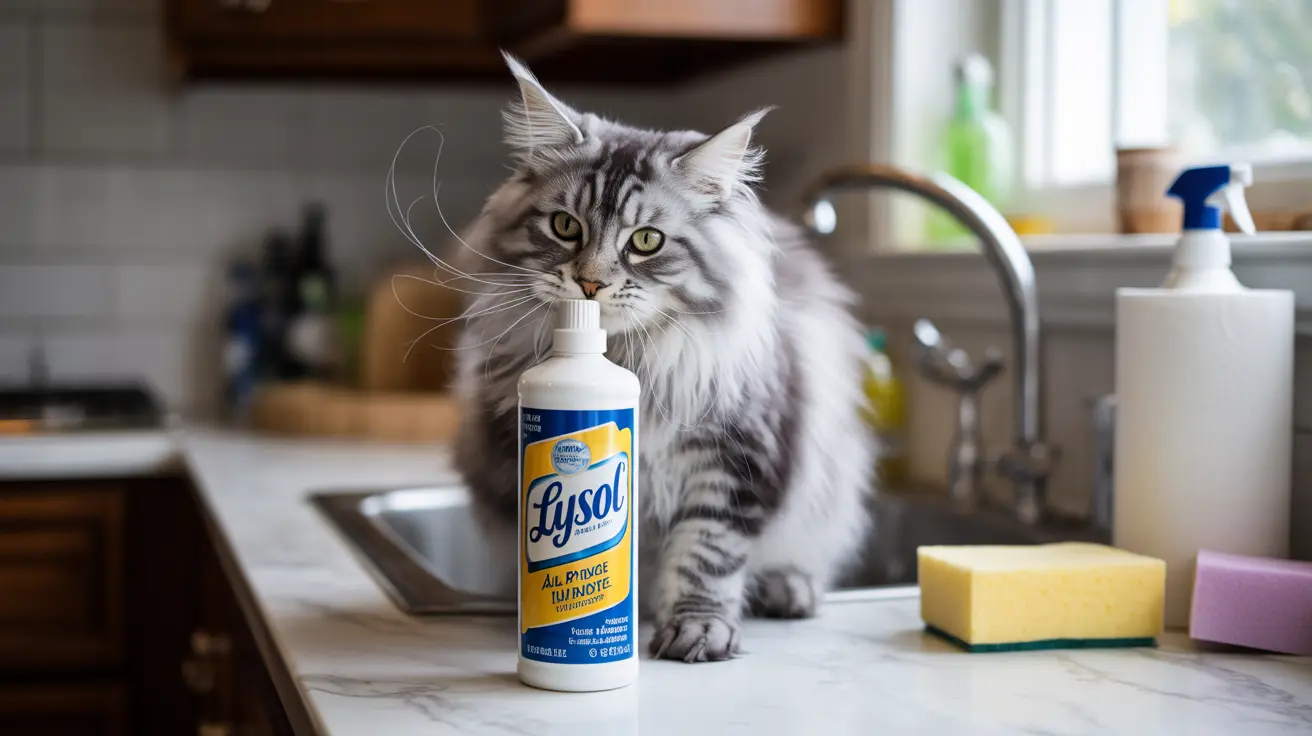Understanding Lysol's Limited Effect on Fleas
While Lysol may kill some adult fleas on contact when sprayed directly on hard surfaces, its effectiveness falls far short of dedicated flea control products. The disinfectant's active ingredients, including hydrogen peroxide, ethanol, and benzalkonium chloride, weren't designed for pest control.
Most importantly, Lysol has no effect on flea eggs or larvae, which make up over 90% of a typical flea infestation. This means using Lysol alone would leave the vast majority of the problem untouched.
The Hidden Dangers of Using Lysol Around Pets
Using Lysol for flea control isn't just ineffective—it's potentially dangerous for your pets. Cats are particularly sensitive to the chemicals in Lysol, and exposure can lead to serious health issues:
- Severe skin irritation
- Respiratory problems
- Gastrointestinal distress
- Mouth and tongue ulcers
- Potential organ damage
- In severe cases, death
Understanding the Flea Life Cycle
To effectively combat fleas, it's crucial to understand their life cycle. Fleas go through four distinct stages:
- Eggs
- Larvae
- Pupae
- Adults
Adult fleas, which Lysol might kill on contact, represent only about 5% of the total flea population in your home. The remaining 95% exists in various developmental stages, hiding in carpets, furniture, and pet bedding.
Safe and Effective Flea Control Solutions
Veterinary-Approved Treatments
Instead of reaching for Lysol, consider these proven flea control methods:
- Topical flea preventatives
- Oral flea medications
- Veterinary-approved flea shampoos
- Professional-grade flea sprays designed for pet safety
Environmental Control
Combine pet treatment with these household measures:
- Regular vacuuming of all surfaces
- Washing pet bedding in hot water
- Professional pest control services
- Using pet-safe environmental flea treatments
Frequently Asked Questions
Does Lysol effectively kill fleas on carpets and furniture in my home?
No, Lysol is not effective for killing fleas in carpets and furniture. It may kill some adult fleas on contact but won't affect eggs or larvae, which make up most of the infestation.
Is it safe to use Lysol around cats and other pets to control fleas?
No, using Lysol around pets is dangerous. The chemicals in Lysol can cause severe health problems if pets inhale them or come into contact with treated surfaces.
Why does Lysol fail to eliminate flea eggs and larvae in an infestation?
Lysol is not formulated to penetrate the protective coating of flea eggs or affect larvae. It's a surface disinfectant, not an insecticide designed for pest control.
What are safer and more effective alternatives to Lysol for flea control?
Veterinary-approved flea treatments, professional pest control services, and regular cleaning with pet-safe products are much more effective and safer alternatives.
How should I properly treat and prevent flea infestations in my pet and home?
Use a combination of veterinary-approved flea preventatives on your pets, maintain regular cleaning routines, and treat your environment with pet-safe flea control products designed specifically for this purpose.
Conclusion
While it might be tempting to use Lysol as a quick fix for fleas, this common household disinfectant is neither safe nor effective for flea control. Instead, focus on veterinary-approved treatments and comprehensive pest management strategies that will keep both your home and pets safe while effectively eliminating flea infestations.






